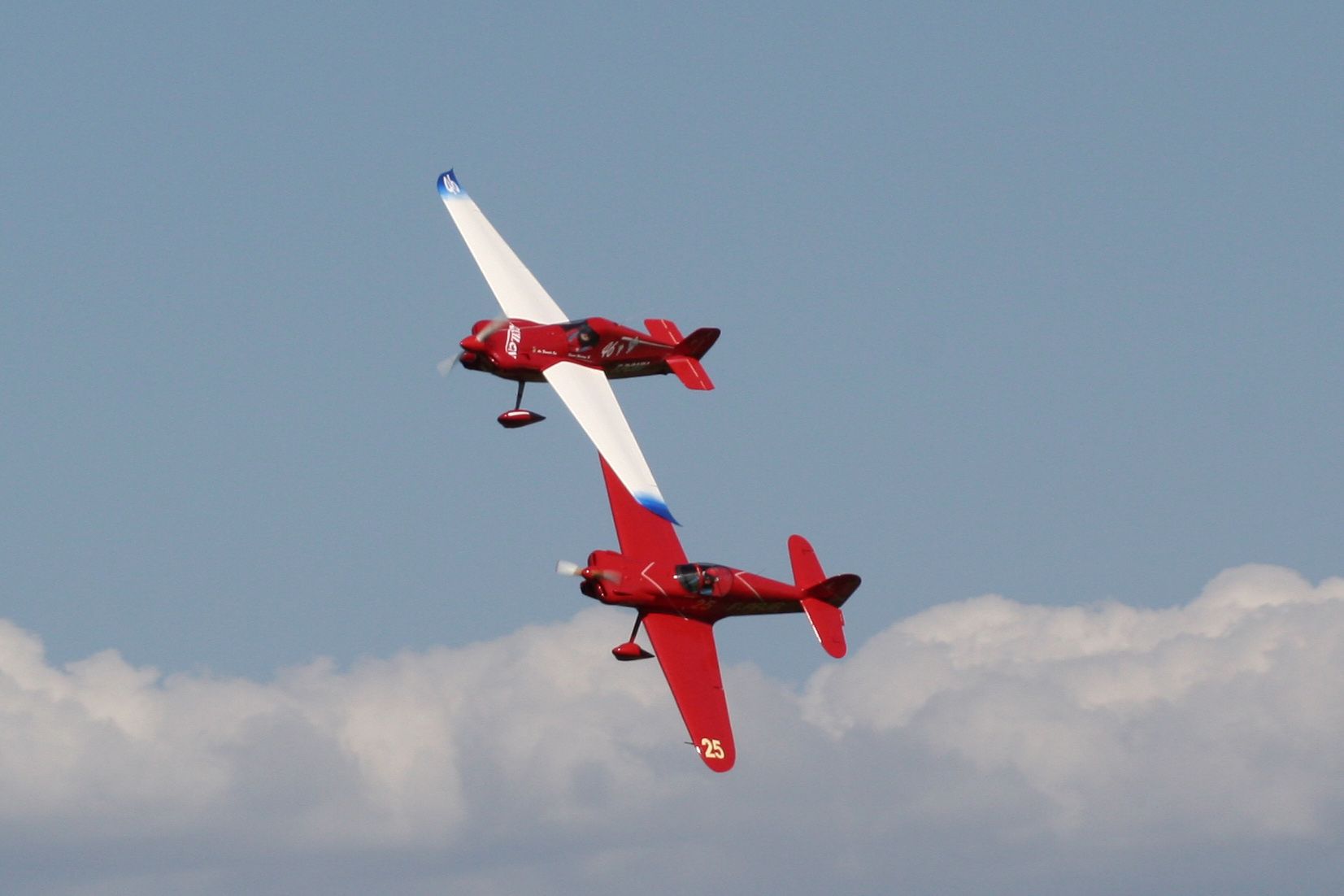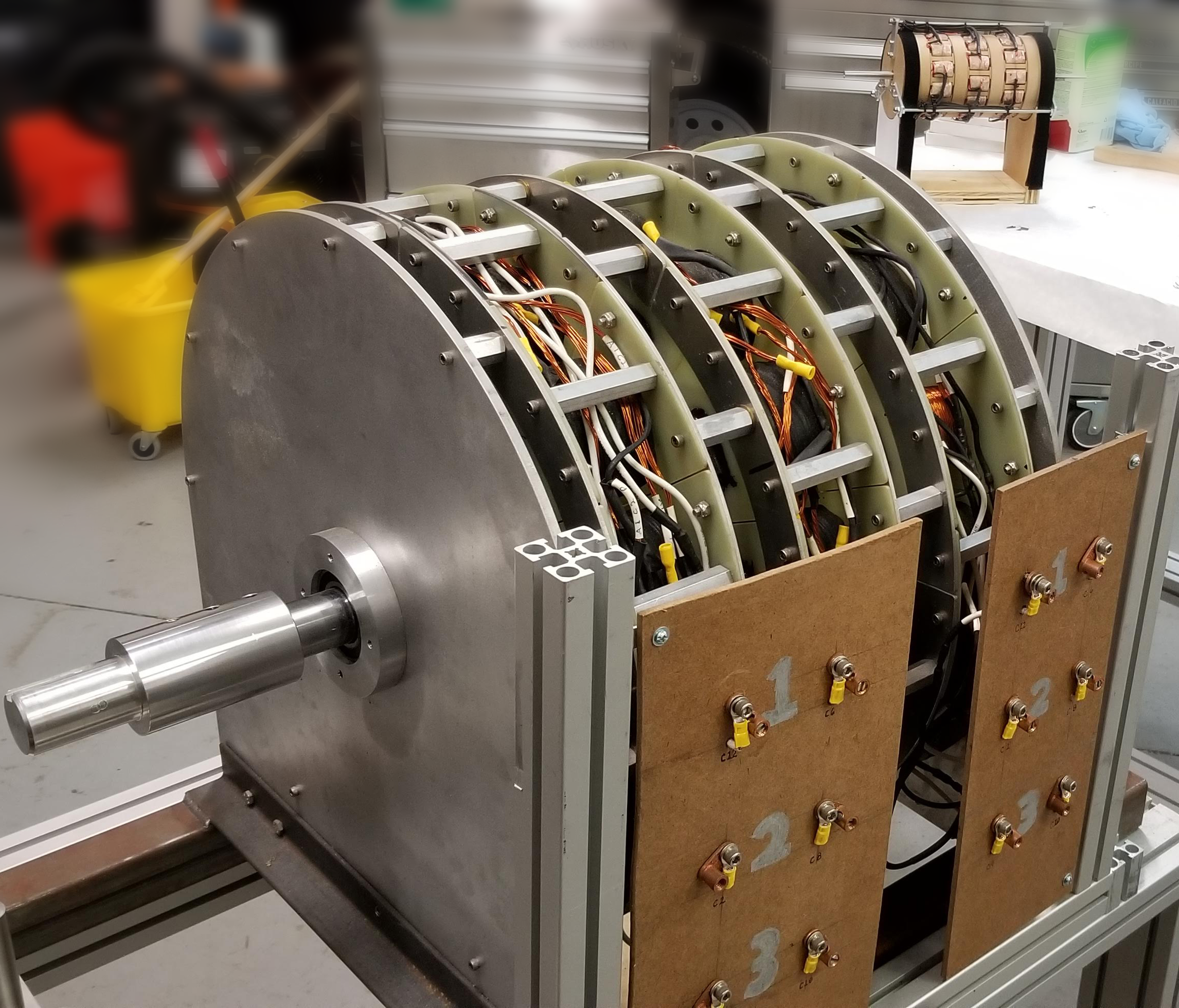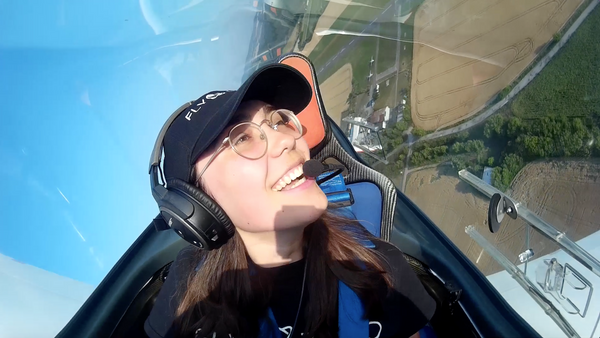The Invention That Could Democratize Energy
Quite possibly one of the most game-changing creations in the electric motor arena since Nikola Tesla. Read on to learn more about the ingenuity of Carl Copeland.
by Victoria Oldridge
Carl Copeland: Founder & President of Möbius Aero, Carl holds more than 30 patents in electromechanical machines and power generation technology. He is an innovator, serial entrepreneur, with a focus on creating new, pragmatic technologies that address humanity’s most pressing needs; most notable -- a new magnetic structure that produces motors <10% the size and weight of current electric motors.
Möbius Aero: America’s team is in the race for the future of electric aviation. Möbius is a Founding and Official Team of the new, all-electric Formula 1 air race league, Air Race E, and is focused on being the first team across the finish line, making history in 2021. They will be racing at speeds of over 200 mph on a tight 3-mile circuit, just 10 meters above the ground.

Truffld: Through unusual circumstances, you were financially supporting your family at age 11, and raising your two younger siblings -- one of them you and your brother helped put through college, sacrificing your own education. How did this quickly developed grit and intense work ethic inform your future trajectory?
Carl: Well, it wasn’t easy, but I really didn’t think much about it at the time. I was young and just doing what needed to be done. It did, however, instill in me a sense of pride and determination. I knew the hard labor I was performing meant my siblings wouldn’t go hungry, something that was very real to us. It showed me what could be done by applying effort with perseverance. It also meant I’m not really afraid of failure. I had nowhere to go but up. Pain and suffering were my bed fellows, so I’ve never really been afraid of it. It frees me up to endure hardship and reject offers that would undercut my position for the promise of a little relief. I’m always going to choose the short-term loss for the long-term gain.
Truffld: As a young child, you were already enamored with the energies and frequencies we can’t see with the naked eye. Electromagnetism became your focus. In response to ‘thinking outside the box,’ you’ve said, “Who said there was a box to begin with? Growing up, everything I ever put inside a box died.” How has your limitless mindset shaped your ingenuity?
Carl: I think being placed in a situation where I had little resources and had to confront big problems, provided me a unique perspective on problem-solving. I never had the common or easy solutions available to me. They say 'necessity is the mother of invention', but I would add that desperation is the kick in the seat you need to apply your creative problem-solving skills.
In having to solve challenges MacGyver-style, it opens your mind to ideas and information most of us don’t consider. Our mind is a power tool. If we present it with a problem and get out of its way, it will literally write new neural pathways and concatenate information that most would consider unrelated. Having the patience to let that process work is the biggest challenge. Everyone wants everything done now, but that’s not how it actually works.
The biggest problem we humans get into is limiting ourselves to the knowns and not taking the risks needed to find the unknowns. It’s not really a box people get caught in, it’s more like ruts. If the person who made the ruts went off into the ditch, you’ll wind up there, too. Sometimes you have to find a way to forge a new path.
Truffld: Your patented electric Field Modulation Motor (FMM) has applications ranging from aeronautics and transportation, to robotics and military machinery. It also yields such efficiency -- from torque to weight -- that it can produce the same output as competing motors at <10% the size and weight. Move over Tesla!?
Carl: Tesla Motor Company? I wouldn’t say 'move over', I’d say 'please come on over.' My motor will be for electric vehicles what the jet engine was for aviation, a monumental leap forward. I expect my motor to be powering most everything that moves us in the next decade or so. It would increase the power and range for any electric vehicle application.
My motor will drive our future, both literally and figuratively. A smaller, lighter motor will also make other technologies that are currently thought of as sci-fi, a reality. Humanoid robots, drones, electric air commuters, powered prosthetics, all will become practically achievable and affordable by my motor.

Truffld: You’ve made the analogy that the many of the poorest persons in the United States would still be more financially well-off than the most wealthy persons in many third world nations, and that this is largely attributed to access to inexpensive energy. How can your technology change that story?
Carl: Access to affordable energy determines the wealth of any group of people. Without it you have little to no industry, manufacturing or large scale agriculture. There are several key factors that influence access to energy resources, and the lack of infrastructure for the delivery of energy is probably one of the most critical.
Take the nation of Bangladesh, for example. The government owns and operates the electrical power supply. It costs the Bengali government over twelve cents per kWh to deliver electrical power. This power isn’t being purchased, but supplied. Why would the government, then, provide electrical power to people living on islands who have never seen a doctor or teacher? They don’t produce revenue for the state, so they’ll never receive electricity.
If I can change access to affordable energy, I can change humanity. With affordable, abundant and available power, you can produce affordable, abundant and available clean water. With water you can produce abundant, affordable and available agriculture. Everything else we need comes from agriculture: food, medicine, textiles, building materials, etc. Meet these basic needs and now you can lift people out of poverty with education, empowerment and enlightenment.
Truffld: The FMM will soon sit inside one of the planes that will compete in the world’s first Formula 1 electric air race. Tell us more about the race, and how you expect your motor to stack against the other participants.
Carl: Formula 1 air racing is one of the most extreme spectator sports. You have eight planes at a time flying wingtip-to-wingtip at speeds exceeding 200 mph. The pilots who fly these planes are some of the best in the world. It’s not easy to get certified to race one.
This new electric league, Air Race E, takes it a bit further. One thing that sets it apart from other F1 leagues is the relaxation of the rules for the plane. This is because it’s never been done before, and all the teams are innovating new technologies and applications in order to make this race possible. As I like to remind my team regularly, 'Everything we do is a world’s first. We will be the first to do it. Did you think it was going to be easy?'
We believe our motor will give us a distinct advantage. We'll be able to produce much more power for much less weight and size. This will make our plane lighter, faster and more energy efficient. Efficiency results in lighter battery packs and, thus, more speed.
It is certainly an exciting race to be competing in, but for us, the real excitement and true victory will be in delivering that hopeful future we have been dreaming of since we were children. That is the finish line we intend to cross.
Truffld: With 30 patents, an invention that sets itself apart in its class, and a year of air races to look ahead where you can showcase the FMM’s potential, the journey so far hasn’t come without its pain points. Tell us more about what you’ve learned as a CEO, and the process in commercializing this sort of technology.
Carl: The short answer would be to think hard, plan thoroughly and then expect it to take twice as long and cost three times as much. Then do it anyway!
All kidding aside, the most important lesson to learn is how to persevere. You have to find the strength and fearlessness to see what your objectives are and relentlessly pursue them. It’s really important for it to be something you believe in. I tell my family all the time, the obstacles that we face are the barriers that separate us from those who don’t have the grit to overcome them. If it were easy, everyone would do it, and it wouldn’t be as meaningful.
You are going to face technical challenges, financial crises, and you’ll prove your ideas wrong more than right. Failure doesn’t really mean you failed, it means you can now move away from a futile effort and refocus. Not one person walked a tightrope on their first try. They fell again and again, until they stood more than they fell.
We all face challenge, failure and disappointment, but you really haven’t failed until you quit. I’m just too dumb to quit. Be too dumb to quit, and don’t waste a moment fearing criticism for it.



